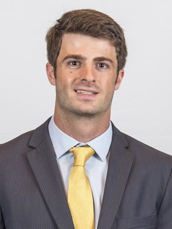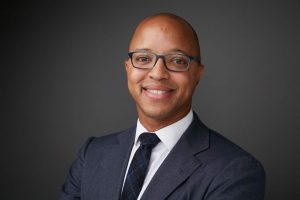Blog Post On NIL and Antitrust
NCAA’s Proposed NIL Regulations Are an Antitrust Violation Waiting to Happen
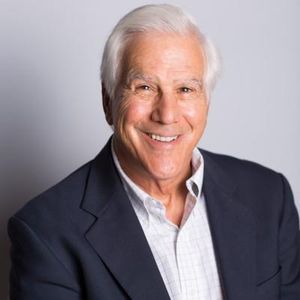 by Ronald S. Katz
by Ronald S. Katz
The NCAA is no stranger to antitrust violations. Defendant in a landmark U.S. Supreme Court antitrust case in 1984, the NCAA has been on the wrong side of two Ninth Circuit decisions in the past five years (a blink of the eye in antitrust time). That record of recidivism, however, has not stopped the NCAA from, once again, ignoring the free market and proposing new regulations (“Proposal”) on the sale of the names, images and likenesses of college athletes. The Proposal, not surprisingly, runs afoul of those earlier court decisions.
Names, images and likenesses have been sold since time immemorial in a free market. Of course, in a free market, these transactions are confidential. How much someone is being paid for a name, image or likeness is clearly competitively sensitive information.
Such confidentiality will not exist in the contracts of college athletes, however. According to the NCAA’s October 14, 2020 press release on the Proposal, “student-athletes would be required to disclose name, image and likeness activities including compensation arrangements and details of relationships developed through the process.” Such disclosures would be made to what the press release calls “a third-party administrator.”
Also, a free market enables competitors to deal with whom they please. According to the press release, however, there will be significant restrictions on the college athletes. First, they cannot “particpate in activities involving a commercial product or service that conflicts with NCAA legislation (such as sports wagering or banned substances) … ” However, sports betting and so-called banned substances like cannabis are, of course, legal in many states.
More ominously, according to the press release, “schools would have the opportunity to prohibit activities that conflict with school values or existing sponsorship arrangements.” Because many of the schools have sponsorship arrangements with major sports equipment/apparel companies like Nike and Adidas, this is a significant curtailment of competition. As for “school values,” this hopelessly vague phrase has the potential of blotting out all NIL activity by college athletes.
Measuring the Proposal against the major antitrust cases lost by the NCAA paints a clear picture of antitrust violations on the horizon. The 1984 U.S. Supreme Court case, for example, NCAA v. Board of Regents of the University of Oklahoma, 468 U.S. 85 (1984), involved the NCAA’s policy of curtailing the number of football games a school could televise, much as the Proposal curtails the quantity of names, images and likenesses that a college athlete can sell.
The Supreme Court’s holding was foursquare against the NCAA: “that the record supports the District Court’s conclusion that, by curtailing output and blunting the ability of member institutions to respond to consumer preference, the NCAA has restricted, rather than enhanced, the place of intercollegiate athletics in the Nation’s life. Accordingly, the judgment of the Court of Appeals [against the NCAA] is Affirmed.”
The Proposal does not fare any better under the 2015 Ninth Circuit case, 0 ‘Bannon v. National Collegiate Athletic Association, 802 F.3d 1049 (20!5). That case involved paying athletes for their names, images and likenesses, which was completely forbidden at that time.
The Ninth Circuit held that higher educational institutions were prohibited from preventing such payments up to the cost of attendance at an institution of higher education: “In this case, the NCAA’s rules have been more restrictive than necessary to maintain its tradition of amateurism in support of the college sports market. The Rule of Reason [of the Sherman Antitrust Act] requires that the NCAA permit its schools to provide up to the cost of attendance to their student athletes.”
The Proposal also does not meet the standards of the 2020 Ninth Circuit case, In re National Collegiate Athletic Association Athletic Grant-in-Aid Cap Antitrust Litigation, No. 19-15566 (May 18, 2020). That case involved paying athletes for education-related expenses. The Ninth Circuit opinion prohibited the NCAA member schools “from enforcing rules that restrict the education-related expenses that its member institutions may offer students who play Football Bowl Subdivision football and Division I basketball.” Again, the Ninth Circuit’s holding was crystal clear: “the district court properly concluded that NCAA limits on education-related benefits do not ‘play by the Sherman Act’s rules.”‘
Based on the above, the Proposal, if it is enacted by the NCAA, will violate the antitrust laws. As Senator Richard Blumenthal of Connecticut was quoted in the November 14, 2020 issue of USA Today, the Proposal was “functionally useless” and “will do little to change the current exploitive state of college athletics.”
Ron Katz is a Senior Counsel at GCA Law Partners LLP in Mountain View, California. A co-author of the textbook Sport, Ethics and Leadership (Routledge, 2017), he will be speaking on the subject covered above at the 2021 IP and Social Justice CLE this coming March 5.
For more on this topic, check out these posts:
Recent Name/Image/Likeness Legislation Will Change the NCAA (or Not)
The California Fair Pay to Play Act- Finally IP Social Justice for Student Athletes
Blog Post IP Attorney Interviews
Interviews with Attorneys of Color in IP
In 2020, spring and summer protests of racial injustice and mistreatment by police increased momentum to a movement to support diversity and inclusion in a variety of spaces, including in the legal field. Our work at the Institute has always included efforts to increase the diversity of the intellectual property legal bar. In 2003 the Institute established its annual IP and Social Justice CLE program, in part to provide opportunities for IP attorneys of color to present their expertise before IP experts in in-house corporate and governmental legal departments, elite law firms, and other IP entities. For the past seventeen years, this program has also enabled minority IP attorneys to serve as role models for dozens of law students and to encourage them to pursue careers in IP practice.
We believe the lack of diversity in the IP legal bar must be addressed in a variety of ways. We previously shared the Bloomberg Law article, Black IP Lawyers Who’ve Made It Look to Grow Ranks Beyond 1.7%. Now we build on that conversation starter with interviews with successful IP attorneys of color to hear their honest perspective:
- Esther Lim
- Mariessa Terrell
- Daryl Lim
- Jennifer Hayes
- Lita Rosario-Richardson
- Philip G. Hampton
- Idris N. McKelvey
Esther Lim
This month we feature an interview with Esther Lim.
Watch the full interview here.
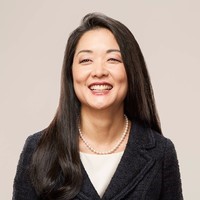
Esther H. Lim is Partner & Chief Diversity and Inclusion Officer at Finnegan, Henderson, Farabow, Garrett & Dunner, LLP, and Patent Chair of the IIPSJ IP and Social Justice CLE program. Watch as she provides valuable insight into her personal journey to a career in patent litigation, portfolio management, licensing, and counseling, and the importance of diversity in intellectual property practice.
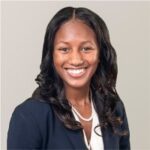
The interview was conducted by Ariel Batiste, a 2023 graduate of Howard University School of Law, and current associate at Finnegan.
Mariessa Terrell
This month we feature an interview with Mariessa Terrell.
Watch the full interview here.
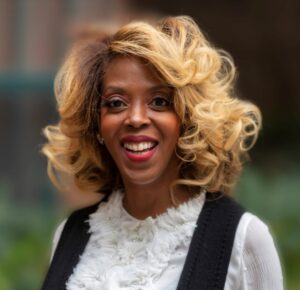
With evolving definitions on what intellectual property includes and rapidly emerging technology, trademark and fashion attorney Mariessa Terrell discusses the unconventional career pathways taken that launched her to the forefront of a landscape shift in intellectual property law.
From her beginnings as a student at Howard University School of Law, Mariessa found a way to incorporate her love of fashion into her journey. Landing at the United States Patent and Trademark Office(USPTO) in the department responsible for beauty fashion matters was just the beginning. Since then, she has gone on to develop specialized practice areas at her law firm, served as D.C. Fashion Commissioner, and assumed the role of Adjunct Professor & Supervising Attorney of the Howard University School of Law Intellectual Property Law Clinic. She details that staying focused on what she wanted helped navigate her through her unique route to success.
After an extended hiatus, Mariessa made her way back to the USPTO office where she is the Attorney Advisor to the Trademarks Customer Outreach section where she develops the USPTO educational programs for experienced trademark practitioners. She also is Executive Director of the High Tea Society, a mentoring program for girls in Washington, D.C., and a creative writer with several published short stories featuring her alter ego, Simone Butterfly.
Contact Mariessa:
Web: MariessaTerrell.com
Social Media: @MariessaTerrellEsq
Email: M@MariessaTerrell.com
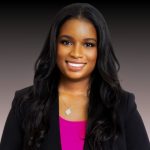
This interview was conducted by Leeandria Williams, a law student at Thurgood Marshall School of Law.
Daryl Lim
This month we feature an interview with Professor Daryl Lim.
Watch the full interview here.

Professor Daryl Lim is a very busy man. He is the H. Laddie Montague Jr. Chair at Penn State Dickinson Law, associate dean for Research and Innovation, and the founding director of Dickinson’s IP and Innovative Initiative. Incredibly, Professor Lim is also a co-hire in Penn State’s Department of Computational and Data Sciences, and an affiliate at Penn State’s Center for Socially Responsible Artificial Intelligence.
Truly IP’s international man of mystery, Professor Lim is an alumnus of the University of Singapore, the University of London (London School of Economics), and Stanford University. In addition to his professorial duties, he serves as a peer reviewer for several leading law journals as he is himself an award-winning author on the intersection of IP, technology, competition policy, and the public good.
During the interview, Professor Lim tackles the hard-hitting questions, including whether the practice of law as we know it will survive the current influx of generative AI chatbot programs, like “ChatGPT.” Thankfully, Professor Lim assures us that future lawyers who possess distinctly human characteristics–such as empathy, creativity, and a passion for social justice–will always be able to add value.

This interview was conducted by Liana Alston, a third-year law student at Howard University School of Law.
Jennifer Hayes
This month we feature an interview with Jennifer Hayes.
Watch the full interview here.
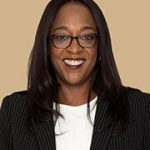
In this interview Jennifer Hayes, head of Jordan IP Law’s Pharmaceutical, Biotechnological, Life Sciences, and Chemical and Materials Practice groups gives her perspective on diversity in the legal profession and the importance of mentorship. Early in her career, Jennifer followed in her father’s footsteps and became a registered pharmacist in the state of Maryland. Later, her mother encouraged her to seek out a career in patent law.
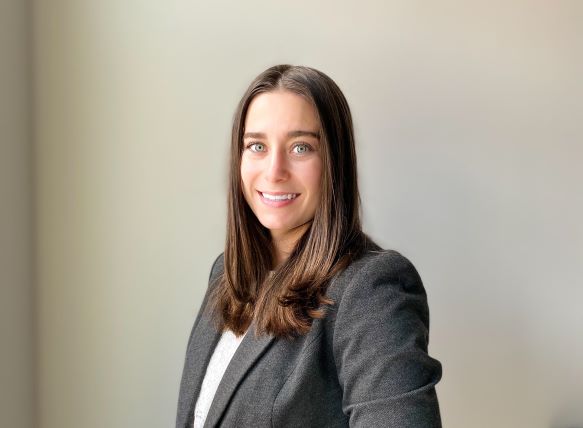
This interview was conducted by Erin Williamson, a third year law student at The George Washington University Law School. in the interview, Jennifer stresses the importance of “not taking no for an answer” and diligently pursuing opportunities to grow in one’s practice. In the interview, Jennifer talks about her experiences building Jordan IP’s chemical practice from the ground up and the challenge of bringing in new clients. Throughout the interview is one consistent theme: understand your strengths and never stop seeking opportunities to improve yourself.
Lita Rosario-Richardson
This month we feature an interview with Lita Rosario-Richardson.
Watch the full interview here.

Lita Rosario-Richardson runs WYZ Girl Entertainment Consulting, where she provides legal advice and advocacy for creators relating to intellectual property and entertainment issues. Early in her career, Mrs. Rosario-Richardson founded and was the VP of Business and Legal Affairs for University Music Group which produced multi-platinum artists Dru Hill, Sisqo, and MYA. She has represented numerous artists, including George Clinton, Missy Elliot, members of Parliament Funkadelic, Afrika Bambaataa, and Soul Sonic Force to name just a few. She is also an adjunct professor at the University of the District of Columbia’s Department of Mass Media, Visual, and Performing Arts and American University’s Kogod School of Business.
Philip G. Hampton
This month we feature an interview with Philip G. Hampton.
Watch the full interview here.
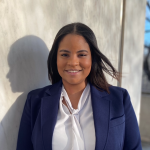
The interview was conducted by Elizabeth Rice, a third year law student at Howard University School of Law. In this interview, Chief Diversity & Inclusion Officer, Senior Partner and former Commissioner for Trademarks Phillip Hampton provides his perspective on diversity, the importance of mentorship, and success within the legal profession. Outside of his aforementioned experience, he is also an adjunct professor at Howard University School of Law and was recently awarded the 2021 Mark T. Banner Award, among many other recognitions and accomplishments.
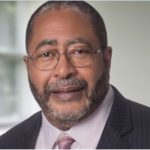
Throughout the interview Hampton emphasizes the need to increase the presence of women and minorities in the legal profession, especially in the areas of patent and copyright law. He makes mentions of his own efforts in his former position as Commissioner for Trademarks to do just that. He attributes his personal success to his persistence and sometimes, admittedly, his stubbornness. In the interview, Hampton talks about his experiences early on in his career and how those challenges encouraged him to persist and work harder. While a broad range of topics and anecdotes are covered, a consistent theme is Hampton’s dedication and commitment to helping others achieve success in the legal profession.
Idris N. McKelvey
In December 2020, we featured an interview of Idris N. McKelvey.
Idris McKelvey leads the Estée Lauder Companies’ Patent Group, where he is responsible for designing and executing the company’s global patent strategy, supporting more than 30 luxury cosmetics brands. Idris was promoted to Vice President, and Lead Patent Counsel, in July of 2018.
Prior to Estée Lauder, Idris served as patent counsel for Procter and Gamble, managing global patent portfolios for brands including Pantene®, Head and Shoulders®, Herbal Essences®, Cascade®, and Dawn®.
Idris earned his J.D. from Howard University School of Law in 2005, and his B.S. in chemistry from Howard University in 2002 (cum laude). Away from work, Idris volunteers with the Long Island chapter of Girls Inc. and Jack and Jill of America. Idris resides in Huntington, NY with his wife, Monique, and two daughters, Nadia and Zara.
The interview was conducted by LaTessa Gray*, a third year law student at Howard University School of Law. In the interview, Mr. McKelvey discusses his career as a patent attorney, provides advice for future IP attorneys, and discusses the diversity, or lack of diversity, of the IP bar.
Here’s a description of the interview in Tessa’s own words.
Vice President, Lead Patent Counsel of Estee Lauder, and full-time “girl dad” Idris McKelvey is nothing short of inspiring. In this interview, McKelvey gives his perspectives on the lack of diversity in the legal profession, how to distinguish yourself amongst legal talent, and the importance of accepting and seeking honest critique in career development. He also negotiates a frozen yogurt date with one of his daughters.
McKelvey details an insightful approach to his philosophy of success which includes falling into opportunities, self-accountability and awareness, and fostering intellectual curiosity. But this is not all talk. His commitment to the skills he believes were useful in his journey is evidenced by his own hobbies and interests: listening to a variety of music, travelling the world with his wife and daughters [which has been on a halt with the virus], and reading books that push him to think and approach the world differently. Many years removed from his days as a chemistry major at Howard University, McKelvey still makes an effort to learn from the world around him and to use those teachings as a tool to differentiate himself within the legal field.

